Milejczyce - rabin Shmuel Tamares
1931 pogrzeb
With God`s help, blessed be he, Monday, Shelach, 5686 by the abbreviated
era, Rudem [Radom]
My honorable friend the genius rabbi famous for his
negotiations
devotes himself for the correction of important issues, our teacher Aharon
Shmuel Tamares May he lives
Gaon Beit-Din of the community of Milejczyce ?
?
I didn’t receive your honorable response to my last letter that I sent a week ago
and now
I can only inform your great honor that the owners of the Gamina demand that you
notify them
the names of the representatives on my side, and in general, they seek
an excuse and do not want in any
way to participate in litigation before a
Rabbinical court.
I hope and wait for an answer………..with great
respect
Yehiel? HaLevi ? ?
I would like to inform you that, with
God`s help, a sixth son was born to me for mazl-tov
and God willing the circumcision
will be on Friday ? of this week
The questions and answers will help to hear and be heard
from you in the negotiations
Forever the
aforementioned
translated by Sara Mages
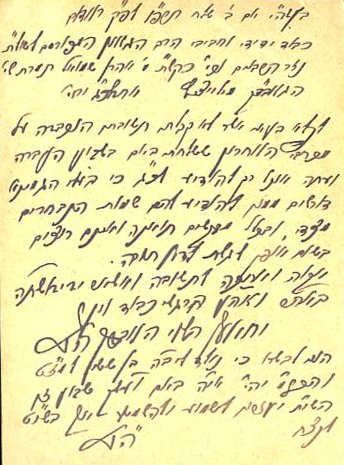
Pogrzeb rabina Tamaresa 1931
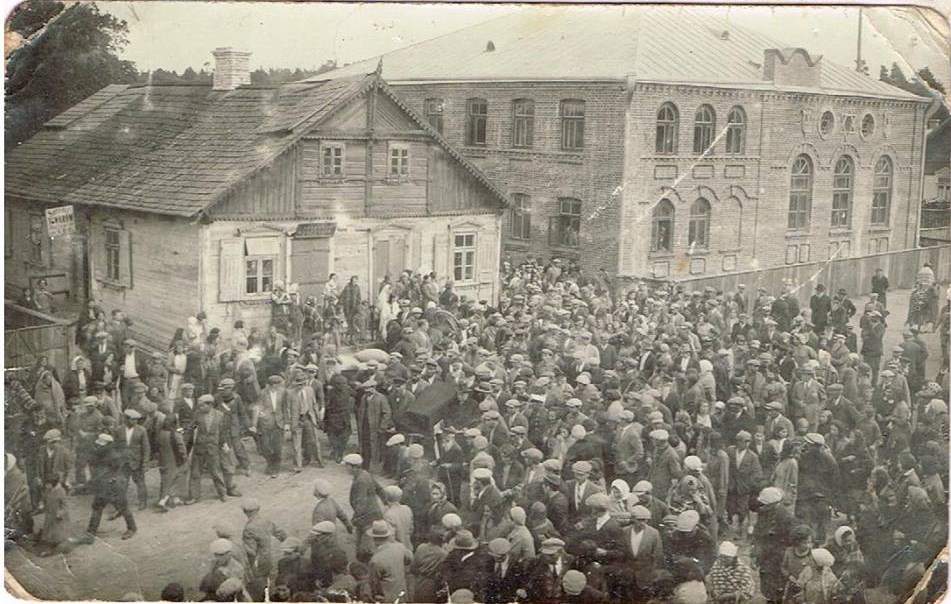
WiT
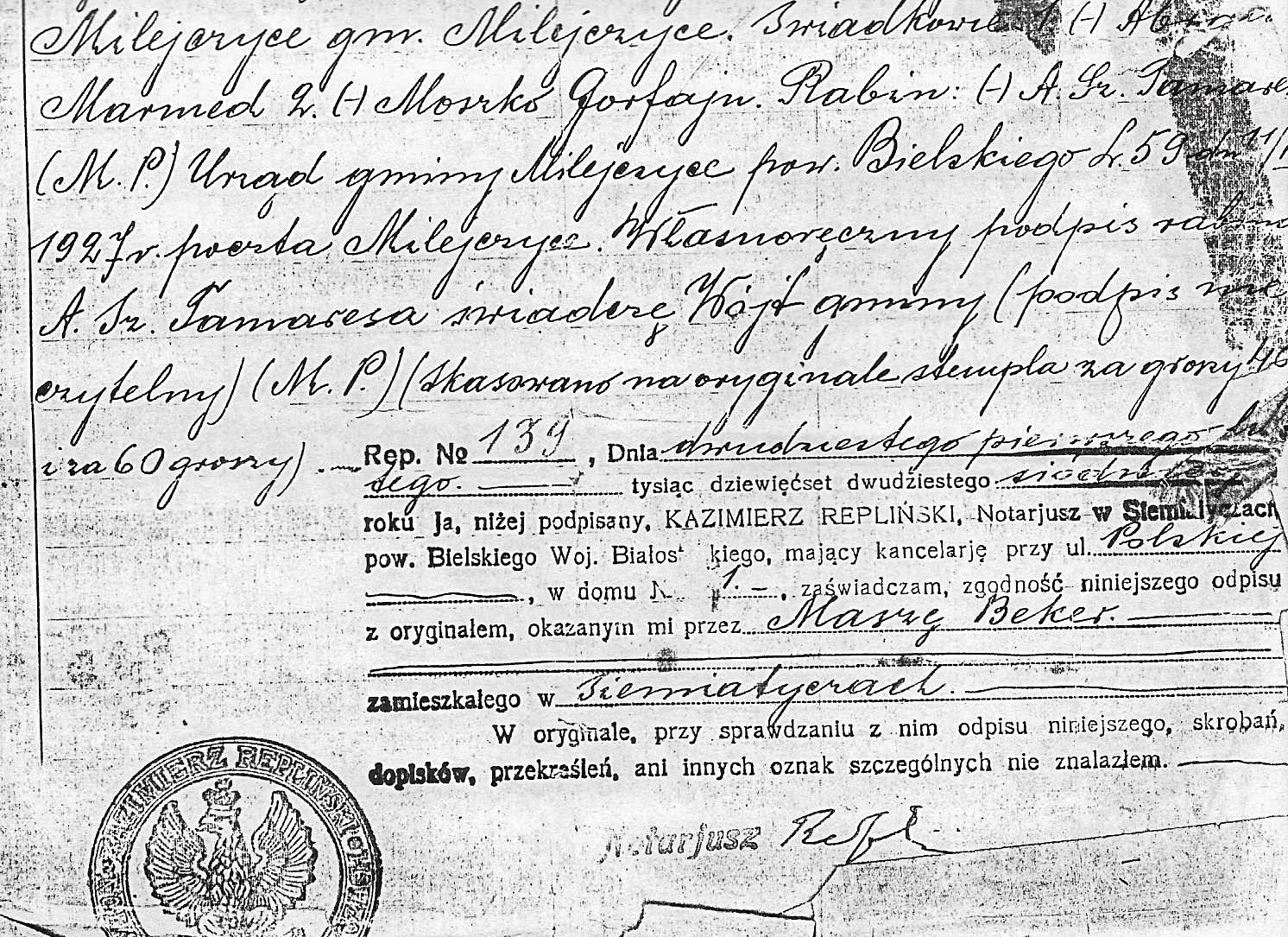
Aaron Samuel Tamares
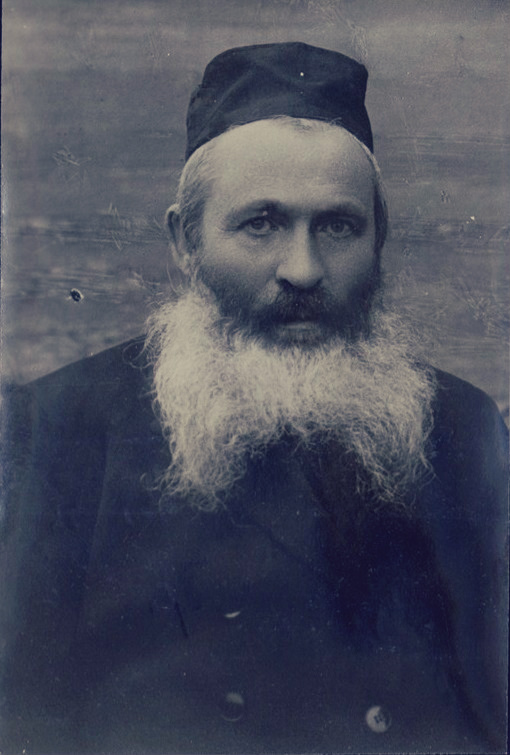
WiT
Postcard from Aharon Shemu’el Tamares to Ḥayim Tchernowitz, n.d
From Aharon Shemu’el Tamares in Milejczyce to Ḥayim Tchernowitz in Odessa, n.d., about a pamphlet he has prepared that includes essays on subjects related to Judaism, including Zionism. The pamphlet has been with the publisher Yehoshu‘a Ḥana Ravnitski for more than half a year but is still unpublished. Tamares suspects that this is because Ravnitski is a Herzlian Zionist, whereas the essays in the pamphlet promote the Ḥibat Tsiyon movement. He asks Tchernowitz to recommend a printer/publisher in Odessa. Hebrew. RG 107, Letters Collection. (YIVO)
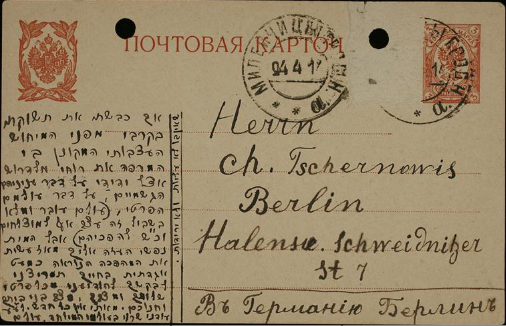
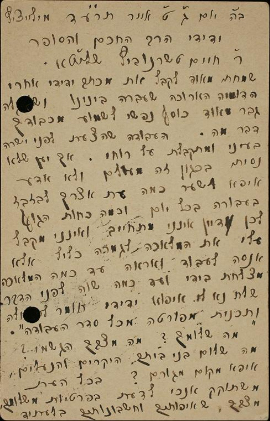
Tamares, Aharon Shemu’el
(1869–1931), rabbi, essayist, and advocate of nonviolence. Born in a village in the Grodno district, Aharon Shemu’el Tamares (who often signed his publications with the pseudonym Aḥad ha-Rabanim ha-Margishim) studied at Kolel ha-Perushim in Kovno, followed by two years at the Volozhin yeshiva. In 1893, he became the rabbi of the village of Milejczyce (in the Białystok region), succeeding his father-in-law.
Tamares joined the Zionist movement and defended it against traditionalist opposition; he expressed his views in the pages of Ha-Melits (1899, nos. 56–70) and elsewhere. Elected to the Fourth World Zionist Congress as a delegate from Brest Litovsk (Brisk), Tamares attended the congress, held in London in 1900, but returned disillusioned with political Zionism. In his book Sefer ha-yahadut veha-ḥerut, published by Ḥayim Naḥman Bialik and S. Borishkin (1905), he criticized the aspirations of Zionists for the Jewish people to be like all the other nations, characterizing this type of thinking as a departure from Judaism’s emphasis on justice.
In 1912, Tamares published two books. Sefer musar ha-Torah veha-yahadut includes several of his sermons; one, for the Sabbath preceding Passover, strongly endorses nonviolence as a Jewish value. Sefer ha-emunah ha-tehorah veha-dat ha-hamonit contains a “critique of the false piety [hitḥasdut] of the masses, called, in the language of the street, frumkayt.” Tamares’s contribution to a symposium on the future of Judaism in the journal He-‘Atid (5 [1913]: 190) includes the assertion that “for us, the Jewish people, our entire distinctiveness is the Torah and Judaism; the kingdom of the spirit is our state territory.” In this essay and elsewhere, Tamares attacks Jewish nationalism as a subversion of the purpose of the Jewish people, which inheres in ethics and spirituality. Thus, he argued, Jewish life in exile has a positive value.
Tamares’s commitment to pacifist values intensified after World War I, and was expressed in his Keneset Yisra’el u-milḥamot ha-goyim (1920), which advocated enoshiyut—“humanism.” His pacifism and opposition to Zionism both found expression as well in a book published partly in response to the Hebron riots of 1929: Sheloshah zivugim bilti hagunim (1930). Tamares also published articles in Hebrew journals, such as Ha-Tsefirah (1920) and Kolot (1923, vols. 6–8), and in Yiddish publications, including Fraynd (e.g., 1911, no. 120, in reaction to the Beilis trial); the Warsaw daily Dos yidishe ort (e g., 1917, no. 219); the Folkist organ, Dos folk (1922); and Agudas Yisroel’s Der yud.
In 1912, Ḥayim Tchernowitz invited Tamares to take over the yeshiva and rabbinical seminary Tchernowitz had founded in Odessa, but Tamares found the city uncongenial and, reportedly after only two days there, returned to Milejczyce. He published Yad Aharon, a book of novellae (ḥidushe Torah) in 1923. It included a responsum, previously published separately in 1910, that permitted a man to marry a second wife because his first wife had become incurably insane. Alienated from both the stultified orthodoxy of his fellows and the modern ideologies of the acculturated, Tamares was a highly idiosyncratic and isolated figure whose work awaits systematic scholarly analysis.
Suggested Reading: Everett E. Gendler, “Ancient Visions, Future Hopes: Rabbi Aaron Samuel Tamaret’s Objection to Zionism As We Know It,” Tikkun 18.4 (2003): 25–30; Ehud Luz, Wrestling with an Angel: Power, Morality, and Jewish Identity, trans. Michael Swirsky (New Haven, 2003); Zalman Reisen (Rejzen), “Tamares Arn-Shmuel,” in Leksikon fun der yidisher literatur, prese, un filologye, vol. 4, cols. 897–902 (Vilna, 1929); Aaron Samuel Tamares, “Politics and Passion: An Inquiry into the Evils of Our Time,” trans. Everett E. Gendler, Judaism 12 (1963): 36–56; Aaron Samuel Tamares, “Passover and Non-Violence,” trans. Everett E. Gendler, Judaism 17 (1968): 203–210; Aaron Samuel Tamares, Patsifizm le-or ha-Torah (Jerusalem, 1992); Stephen L. Weinstein, “Galut (Exile): A Mission or a Curse?; The Writings of Aharon Shmuel Tamares, 1869–1931,” Jewish Quarterly 26.2 (1978): 21–26; Aaron Zeitlin (Arn Tseytlin), “Arn Shmuel Tamares,” Tog-Morgn-Zhurnal (22 September 1961).
Author
Gershon David Hundert
https://yivoencyclopedia.org/article.aspx/Tamares_Aharon_Shemuel
2024-01-18 06:32:47 history
2019-06-18 11:19:04
sklep kolonialny «sklep z art. spożywczymi», kaflarnia
2021-04-15 17:20:06
okres międzywojenny
2018-05-06 18:24:20








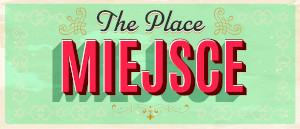
 uzupełnij jewishbialystok@gmail.com
uzupełnij jewishbialystok@gmail.com 



